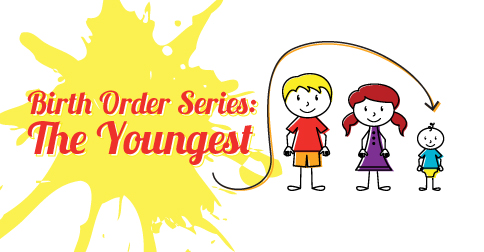
“He’s just the ham of the family!” This is how many parents describe their youngest child, with an endearing smile for the antics of this son or daughter who might be the third or the sixth but is definitely the last.
Characteristics of youngest children often include:
- extroverted
- confident
- creative
- problem solvers
- able to delegate tasks to others
- charming
- funny
Youngest children are often loud, seeking to be the center of attention, not because they are selfish and spoiled as some surmise. Rather, they are looking to gain attention in the crowd that is their family. They observe the attention older siblings have already received and wish to have their fair share.
This makes youngest children natural performers or comedians, always looking for an audience.
It helps, too, that parents usually aren’t nervous anymore, by the time the lastborn comes along. By becoming more easygoing and carefree in their parenting style, parents actually pass these traits on to their youngest child.
But being the youngest isn’t all about fun. Because lastborns view their older siblings as bigger, faster, and smarter, they may attempt to differentiate themselves by being more rebellious, says Sulloway in Parents Magazine. Kevin Leman, PhD and author of The Birth Order Book: Why You Are the Way You Are, himself the family baby, agrees with this statement: “Lastborns have an ‘I’ll show them’ attitude.” And if older siblings baby the baby, lastborns might be spoiled and manipulative.
However, this belief that they can do anything enables youngest children to be more prone to risk-taking since no one ever lets them fail. This can lead to resilience as an adult, if the characteristic is nurtured in a healthy manner.
Tips for parenting the youngest:
- Be sure to offer individual attention, just as you would for your other children.
- Allow the youngest the opportunity to choose the dinner restaurant or movie, rather than always leaning toward the older siblings’ preferences. Youngest children often fear not being taken seriously.
- Acknowledge–and celebrate–their “firsts” with as much enthusiasm as you did for others.
- Give them responsibilities rather than allowing them to skip out on chores because they are “too little.”
What do you think? Does birth order affect your family?
Check out the rest of our Birth Order Series:
The Oldest Child
The Middle Child
The Only Child

